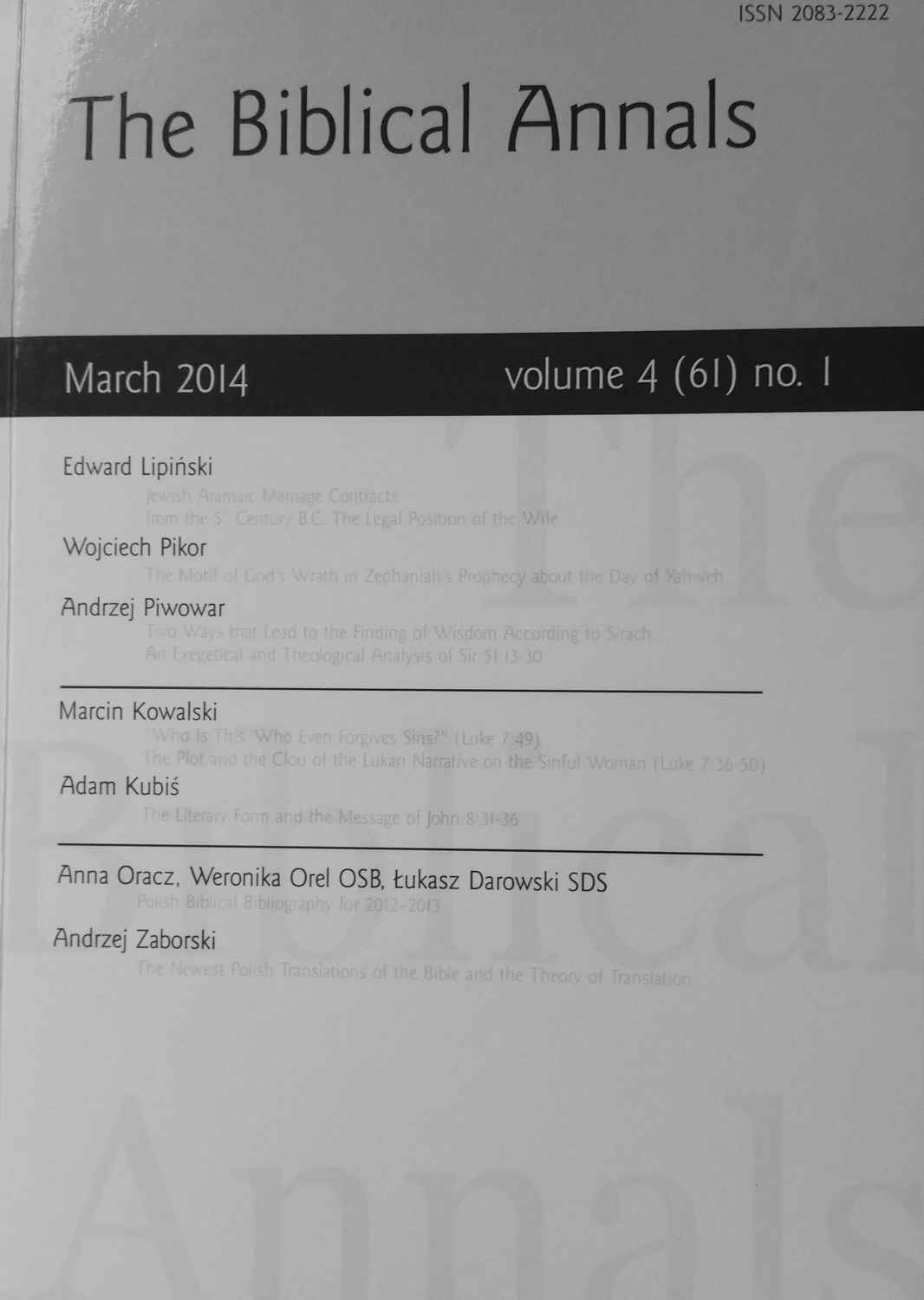Contrats de mariage judéo-araméens du Ve siècle av.n.è.
Jewish Aramaic Marriage Contracts from the 5th Century B.C.
The Legal Position of the Wife.
Author(s): Edward LipińskiSubject(s): History, Jewish studies, Theology and Religion
Published by: Katolicki Uniwersytet Lubelski Jana Pawła II - Wydział Teologii
Keywords: Old Testament; ancient Near Eastern and biblical law; the legal position of the wife; Elephantine documents; marriage contracts; mhr; ‘rbh/‘rbt; ‘rwt; dbr;
Summary/Abstract: The Aramaic marriage contracts from the Jewish military colony in Elephantine, written in the course of the fifth century B.C., provide much needed information about the legal position of the wife in the first millennium B.C., especially in the Persian period. They reflect the practice of middle class families, in which the wife’s rights and the basically monogamous character of marriage, as stipulated by the contracts, parallel an old Near Eastern legal tradition, quite different from the rabbinic one, based in part on a misread, misinterpreted, and widely discussed text of Deut 24:1-4. The article examines the successive steps of marriage agreement, as presented in the contracts, which have some basic features in common and record the bridegroom’s request, his solemn marriage declaration, the payment of the bride-price, the drawing up of a written contract with a description of the dowry, and the stipulations referring to the dissolution of marriage by divorce or death of one of the parties. Their equal rights in case of divorce are not due to the Egyptian environment, but to an old Semitic tradition, going back at least to the early second millennium B.C. The monogamous principle of the marriage contracts in question is also examined and their social context is briefly characterized.
Journal: The Biblical Annals
- Issue Year: 4/2014
- Issue No: 61/1
- Page Range: 9-41
- Page Count: 32
- Language: English, French

